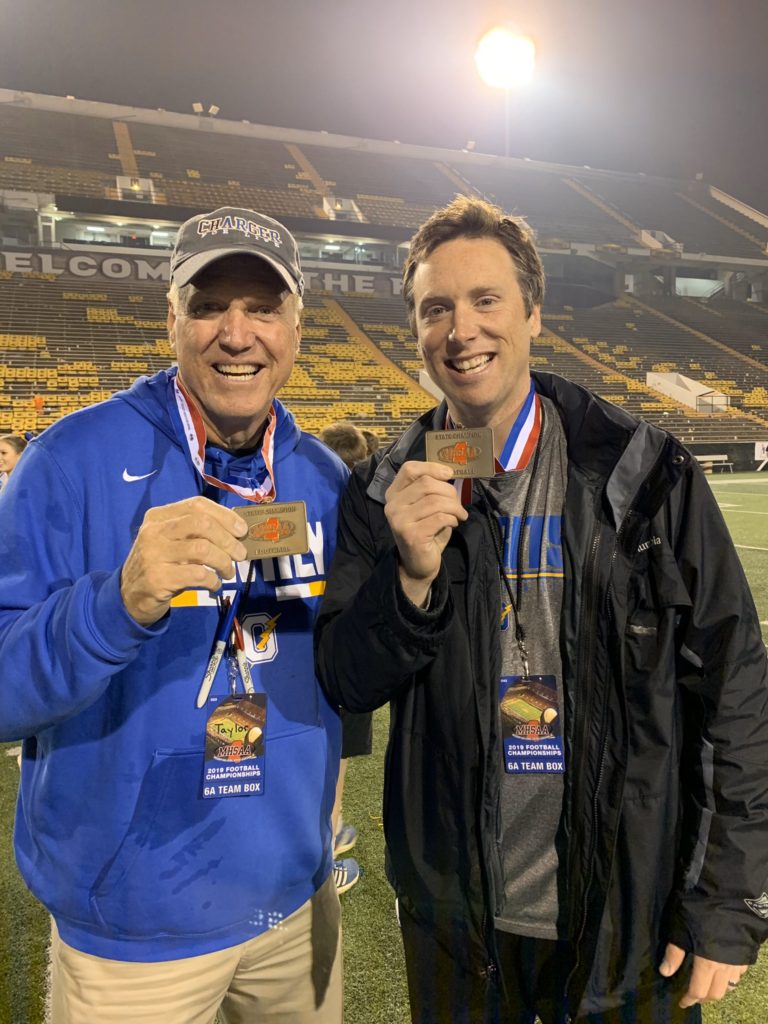Class of 2018’s Hunter Taylor tells us about his experience with PLS, life after the program, and shares advice for the Class of 2020.
Q: Please tell us a little bit about yourself and your personal leadership project (PLP).
A: I am a professor in the School of Education at the University of Mississippi where I also help lead its alternate-route graduate teaching program, The Mississippi Teacher Corps (MTC). My PLP had to do with adding an additional cohort to MTC (at the time, we just had one consisting of 25-35 each year spread throughout the state), and placing all of the participants exclusively in the Jackson area. Jackson Public Schools (JPS) is the only urban school district in the state, and it had one of the largest teacher shortages across the South. My PLP sought to utilize all of the great things about our program (MTC) and focus its efforts on one school district.
Q: How did PLS help you develop your PLP?
A: It helped dramatically. The original idea was for the University of Mississippi (UM) to be the main player in the equation. After hearing several talks about strategic partnerships and being advised by my colleagues in our breakout sessions, my project eventually morphed into a joint-partnership between UM and JPS. Leaders from both sides have an equal say in how the program will be implemented, and leaders from both sides will teach the graduate courses that the new program’s alternate-route teachers take. It now truly feels like a real partnership between university and school district, which is incredibly rare.
Q: Since PLS, how has your PLP evolved? What are you working on now?
A: I referenced in the previous question the biggest changes made to the PLP. Another thing to note though is how my original timeline got altered. I think everyone who participates in PLS feels to a certain degree this desire to want to prove you belong. I badly wanted my PLP to be launched by the end of my time in the program. It didn’t happen. Now, I’m grateful that it didn’t, because we have a better project ready to launch this summer. However, that was something I had to get over. The spirit of PLS is service to others. The project was never to be about me, but I needed to be gently reminded by my loving wife of this important truth when things weren’t going as planned.
In the meantime, I’ve gotten to focus on one of my favorite research areas: coaching education. Prior to joining academia, I was a basketball coach for 10 years. I’m also the son of a 45-year Texas High School football coach. I want to make the profession better and be able to share more “best practices” with coaches across the state of Mississippi. Over the past three years, I’ve advised the football coaching staff at Oxford High School, and this past year my father even joined the staff as an assistant. Each year, the head coach and I injected improvement science methods into his program that focused on improving the team’s culture, developing future player-leaders, and maximizing the team’s on-field potential. I’m very proud to say that this past season we won the school’s first state championship in school history and were named the No. 1 team in the state of Mississippi by Max Preps. It was even sweeter, because I got to do this with my father.
The head coach and I recently launched a digital platform where we share some of our best practices that we uncovered over the past three years. Through this platform, we offer a leadership workshop that schools, businesses, and organizations can take; we launched a podcast where we seek out other expert coaches to ask them about their journeys and best practices; and we are hosting the region’s first ever coaching clinic.
Q: Which lessons learned during PLS have stayed with you the most?
A: The strategic partnerships piece that was emphasized so much during our time in College Station at the Bush Library. This session further confirmed my belief that teams accomplish greatness, not individuals. It doesn’t matter if it’s an idea, a policy, or a business plan, they all advance farther by having other people involved. It’s more enjoyable too. How lonely would it be to achieve things by yourself???
Q: How do you put those lessons into action?
A: In regards to MTC, I think I do such a better job of getting students involved in helping our organization create ideas where we can have a larger impact. I still remember one lesson from the Little Rock session where a speaker said, “You need to try to invite people to the table who normally aren’t invited.” Some of the best ideas we’ve generated in the past year have come from our students.
Also, when it came time to think through launching a platform to reach more coaches in the state, I partnered with a practitioner. There are insights he adds when we create new content that only he sees, because he is still actively coaching. It’s also made this new venture so much fun, because I’m sharing the journey with a great friend.
Q: What advice do you have for the 2020 Scholars?
A:Be present. So many people would love to have your seat. You owe it to them, yourself, and your organization to be fully engaged during every module. This is the type of experience that could SIGNIFICANTLY impact your life (personal & professional) if you approach it the right way. I wish you the absolute best!

